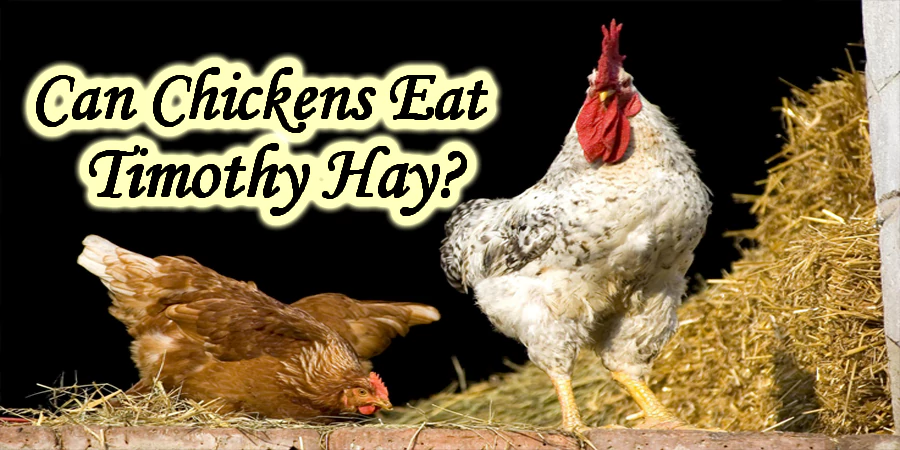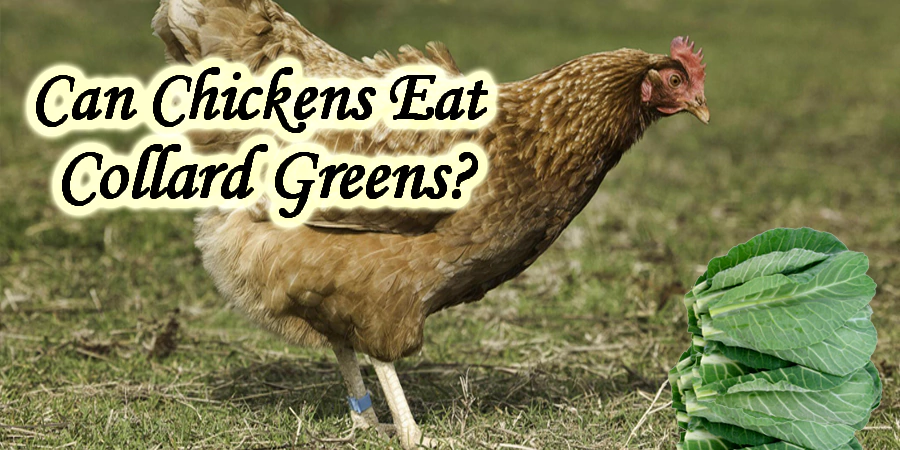Can Chickens Eat Timothy Hay? A Holistic Analysis
Published: 7 Feb 2024
Chicken lovers are always exploring new ways to fulfill the nutritional needs of their flock. “Can chickens eat timothy hay?” is one of those intriguing queries often asked by chicken owners. Yes, Chickens can have timothy hay added to their regular diet with some concerns. We will evaluate the suitability of Timothy Hay for chickens. It is essential to meet the dietary needs of chickens for healthy growth and optimal egg production.
We meticulously delve into the very details of Timothy hay and will give you a deductive insight about serving Timothy hay for chickens. The hazardous aspects of Timothy hay will be discussed and their solution will be provided accordingly. Chickens like to eat a diversified diet and Timothy Hay can be a source of diversifying the chicken’s diet. So, let’s start our journey to unravel the secrets of Timothy Hay.

Can Chickens Eat Timothy Hay? Let’s Explore
What is Timothy Hay?
Timothy plant belongs to the Phleum Prantense family. It is a nutritious grass used all across the world for pets, chickens, and other animals. Due to fiber richness, it is considered a good digestive diet for chickens. The nutritional breakdown (in next) will help understand its usefulness for chickens. It also promotes the natural foraging behavior in poultry.
Nutritional Value of Timothy Hay
Any chicken keeper needs to maintain a healthy diet for optimal growth of chickens. To ensure its compatibility, first, we understand its nutritional profile. Here are some of the major nutrients available in Timothy Hay.
- Fiber Content: Timothy hay contains a good amount of fiber content (roughage) that promotes the digestive process. It also supports the gut mobility and gastrointestinal health of chickens.
- Vitamin Content: Timothy hay has a decent amount of Vitamin A which supports the immune function in chickens. Although leafy greens are considered a rich source of vitamin Timothy hay also contains it.
- Mineral Content: Minerals such as Calcium and Phosphorus are essential sources of bone development and strength in chickens. Timothy hay contains a fair value of these minerals. It improves the eggshell quality.
- Protein Content: Timothy hay is a low-protein diet for chickens. Protein is helpful in the composition of muscles and the production of eggs in chickens. Excessive Protein content is not suitable for chickens.
- Foraging Behavior: Serving Timothy hay to chickens will promote the foraging attitude in chickens. It helps in the mental stimulation of chickens. Relieves the stress and prevents boredom issues in chickens.
Appetizing Ways to Feed Timothy Hay
Like humans, chickens also like to have diversified diet plans. They also get bored with the same diet for a long time. So, it is advised that famous chicken owners entice your flock in various engaging ways. We have selected some of the appealing ways to serve Timothy hay to Chickens.
- Hay Bales: Pecking and stretching are most favorite behaviors of Chickens. So, you can serve Timothy hay in small bales in various parts of the coop.
- Hanging Timothy Hay: You can use a mash or net to hang Timothy hay from the top or side of the coop. It will promote mental stimulation in Chickens.
- Scattered Timothy Hay: It is also observed that Chickens like to forage around in search of food. So, scatter Timothy Hay in the coop.
- Nesting Boxes: Use nests to serve Timothy Hay to your flock. They like to arrange the hay to make a nest for laying eggs. They like to play with it.
- Mixed Hay: It is a very effective way to mix Timothy Hay with other food like Chickens. They consume Hay with other feed.
- Bedding: You can use Timothy hay for the bedding of Chickens in their coop. They will like to peck in their bedding layers and enjoy the meal.
How Much Timothy Hay Should I Feed to My Chickens?
It is a very vital query mostly asked by new chicken owners. You should always decide the quantity of feed after configuring the size, age, and type of breed you have in your backyard. These three elements will give you an estimated idea about their dietary needs. Whatever the case may be, always focus on moderate feeding of Timothy Hay to chickens. It is not recommended to serve Timothy hay to small chickens.
The volume of Timothy hay that you can serve to your flock may also depend upon the regular diet. You are allowed to serve Timothy hay as a small portion (less than 5 percent) of the daily diet to prevent diet imbalance. It is very important to observe the response from your flock and adjust the quantity accordingly. If any symptoms of infection or toxicity, you should immediately consult with your nearest veterinarian.
Benefits of Timothy Hay for Chickens
Till now we are convinced that Timothy hay is healthy for chickens if served adequately. The give you a clear picture of what benefits you can expect from Timothy hay, we have selected some of its major advantages for Chickens.
|
Potential Risks of Timothy Hay for Chickens
After a careful analysis of the benefits of Timothy hay for chickens, it is time to evaluate the other side (drawbacks) of Timothy hay for the flock. Here we have selected some of the most common hazards associated with Timothy hay. You must consider these factors before serving hay to your chickens.
|
Safety Guidelines for Serving Timothy Hay
After discussing the harmful effects of serving Timothy hay to chickens, now we will manage to rescue our beloved flock from these hazards. After taking opinions/suggestions from poultry experts and chicken keepers, we have selected some guidelines for all chicken enthusiasts. Adherence to these safety measures will save your chickens from health issues.
- Purchase timothy hay from a reliable dealer to ensure its quality.
- Always serve fresh and mold-free Timothy hay to your flock.
- Ensure proper storage of Timothy’s hay in a dry and ventilated place.
- Introduce Timothy’s hay to chickens in a very small volume at the start.
- Never treat Timothy hay as a substitute for a regular diet for chickens.
- Provide grit to your chickens to prevent impacted crop issues.
- Keep the place and water clean to ensure optimal health.
- Use engaging ways to serve Timothy hay to chickens to prevent boredom.
- Your supervision during the feeding time is very important.
- Carefully observe the response from your flock to identify the problems.
- Immediate consultation with a veterinarian is very effective for chickens.
What are the Other Types of Hay?
Timothy hay is a healthy addition to the regular diet of chickens. There are other options available to offer hay to chickens. If you have not access to Timothy hay then these variations of hay may be considered for healthy growth of chickens.
Alfalfa Hay:
Alfalfa hay is a good alternative to Timothy hay for chickens. Alfalfa hay is a nutrient-rich additive for chickens. It contains a good volume of protein which is helpful in the overall growth of chickens. It has more quantity of calcium than Timothy hay. It is the best supplementary diet for chickens. You can select Alfalfa hay over Timothy hay for its better nutritious profile.
Orchard Grass:
Orchard grass is full of various nutrients. It contains a high volume of fiber content which is supportive of the digestive process of chickens. It is a preferable supplementary diet as it promotes the natural behavior of foraging and pecking. The nutrient profile and easy-to-serve are key benefits of Orchard grass. You can serve Orchard grass as per your personal preferences.
Bermuda grass:
Bermuda grass is another famous option for chicken keepers to replace Timothy hay. It contains some value of protein but less than Alfalfa hay. Bermuda grass also has some fiber content to satisfy digestive functions.
Oat grass:
Oat hay is produced from oat plants. It is known for its high volume of fiber content. Optimal digestion is one of the priorities of every chicken keeper and fiber is a good tool for it. So, you can replace Timothy hay with oat hay.
Clover hay:
If you are looking for a protein-rich diet for your flock then clover hay is the best option for chickens. It entices the chickens towards foraging which stimulates the mental functions and relaxes the stress. Proteins play a pivotal role in the overall well-being of chickens.
Can I Use Timothy Hay as Chicken Coop Litter?
Yes, you can use Timothy hay as a chicken coop litter with some consideration. Here we will mention some of the key concerns for chicken owners to use Timothy hay as chicken coop litter. Here we go with key factors.
- Timothy hay is an absorbent and should not be used as bedding.
- Timothy hay is less durable than other types of hay.
- It can be used as comfortable nesting material for chicken poop.
- It is easily available in our vicinity.
- Timothy hay is less cost effective as compared to other hays.
Can I use Timothy Hay Pellets?
Yes, Timothy hay pellets are used for bedding in the coop. Dried Timothy hay is favorable for this purpose. These pellets are absorbent and help to reduce the unpleasant odor and prevent bacterial growth. Timothy hay pellets have less dust properties as compared to loose hay. It improves the respiratory functions of chickens.
Timothy hay can be handled/shifted easily in the pelleted form. The coop can be cleaned easily. Serving Timothy hay in pelleted form is an eco-friendly option for chickens. It has some nutritious value for chickens. It is advised to use Timothy hay pellets in moderation.
Can Baby Chickens Eat Timothy Hay?
Baby chickens are more sensitive and more prone to face digestive issues. Therefore, we do not suggest serving Timothy hay to Chicks. There are many reasons behind our conclusion. Timothy hay did not contain the due nutrients required for the optimal development of Chicks. You should prefer the starter diet for baby chickens.
Baby chicks have a delicate digestive mechanism and may face the problem of impacted crop with excessive serving of Timothy hay. Timothy hay with dry stems can cause a choking threat to baby chickens. Considering these consequences you should prefer other feed with better nutrient profile. If you want to serve natural feed to your chicks then consider the flesh of Honeydew, persimmons, Dragon fruit, and watermelon.
Conclusion:
In reply to our query “Can chickens eat Timothy hay?” Yes, chickens can enjoy the crispy treat of Timothy hay. We have discussed the nutritional value of Timothy hay and concluded that it is not enough for the optimal growth of baby chickens. We are convinced that excessive use of Timothy hay can cause nutrient imbalance in chickens.
We have expressed some engaging ways to serve Timothy hay. Potential benefits and risks have been analyzed and concluded that after following the safety guidelines you can serve Timothy hay. We have disclosed the precautionary measures that must be followed. Some of the frequently asked questions are discussed and logically provided their answers.
We request our distinguished readers to share their experiences and thoughts about the topic. Your input and exchange of knowledge are highly appreciated and will support us to ensure the well-being of our beloved flock.

- Be Respectful
- Stay Relevant
- Stay Positive
- True Feedback
- Encourage Discussion
- Avoid Spamming
- No Fake News
- Don't Copy-Paste
- No Personal Attacks

- Be Respectful
- Stay Relevant
- Stay Positive
- True Feedback
- Encourage Discussion
- Avoid Spamming
- No Fake News
- Don't Copy-Paste
- No Personal Attacks


